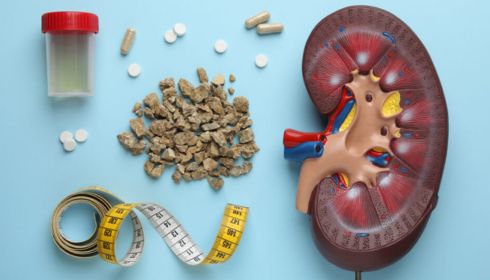Kidney stones are a common medical condition that affects millions of people around the world. These small, hard mineral deposits form inside the kidneys and can cause severe pain, discomfort, and even urinary complications if left untreated. Understanding the causes, symptoms, and various methods of kidney stone treatment is essential for anyone who wants to maintain their kidney health and avoid future complications.
Understanding Kidney Stones
Kidney stones are made up of salts and minerals, such as calcium, oxalate, and uric acid, that crystallize in the kidneys when urine becomes too concentrated. Factors like dehydration, high-sodium diets, certain medications, and family history increase the risk of developing stones. Depending on their size and location, kidney stones may pass on their own or require medical intervention.
Common Symptoms
People suffering from kidney stones often experience sharp pain in the lower back, side, or abdomen, which can radiate to the groin. Other symptoms include:
- Painful or frequent urination
- Blood in urine (hematuria)
- Nausea and vomiting
- Cloudy or foul-smelling urine
- Fever and chills if an infection is present
If any of these symptoms occur, it is crucial to seek medical advice immediately.
Diagnosis of Kidney Stones
Doctors typically diagnose kidney stones using imaging tests such as ultrasound, X-rays, or CT scans. A urine and blood test may also be conducted to check for infections or high levels of minerals. Accurate diagnosis helps determine the type of stone and guides the right treatment approach.
Non-Surgical Kidney Stone Treatment
In many cases, kidney stones can be managed without surgery. Lifestyle changes and medical therapy are often recommended, especially for smaller stones.
- Hydration – Drinking plenty of water helps flush out small stones and prevents new ones from forming.
- Medications – Doctors may prescribe pain relievers and drugs like alpha-blockers that relax the muscles of the ureter, making it easier for stones to pass.
- Dietary Changes – Reducing sodium, animal protein, and foods high in oxalate can lower the risk of future stones.
Surgical and Advanced Treatments
For larger stones that cannot pass naturally, more advanced procedures are required:
- Extracorporeal Shock Wave Lithotripsy (ESWL): This non-invasive method uses sound waves to break stones into smaller fragments that can be passed through urine.
- Ureteroscopy: A thin tube is inserted into the urinary tract to locate and remove stones or break them apart with lasers.
- Percutaneous Nephrolithotomy (PCNL): A minimally invasive surgery where a small incision is made in the back to remove larger stones directly from the kidney.
- Open Surgery: Rarely needed, this procedure is reserved for very complex cases.
Preventing Kidney Stones
Prevention is often easier than treatment. To reduce the risk of recurrence, individuals should:
- Stay hydrated by drinking at least 8–10 glasses of water daily.
- Eat a balanced diet with reduced sodium and animal protein.
- Include more fruits and vegetables, which naturally lower urine acidity.
- Maintain a healthy weight and stay physically active.
When to See a Doctor
Kidney stones should never be ignored. If pain is unbearable, urine output decreases, or there is fever and infection, immediate medical attention is necessary. Early diagnosis and proper kidney stone treatment help avoid serious complications and protect long-term kidney function.
Conclusion
Kidney stones are painful but manageable with the right lifestyle choices, medications, and medical procedures. Modern healthcare provides several effective methods to treat stones and prevent them from returning. By staying hydrated, following a healthy diet, and seeking professional advice, individuals can ensure better kidney health and avoid the distress caused by stones.





